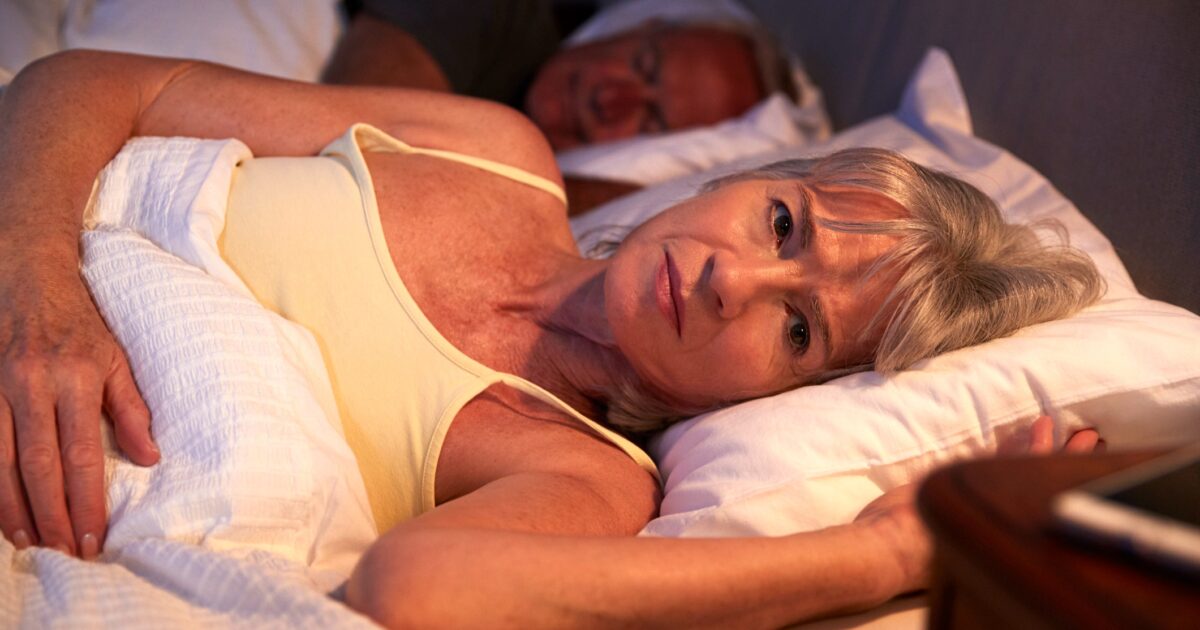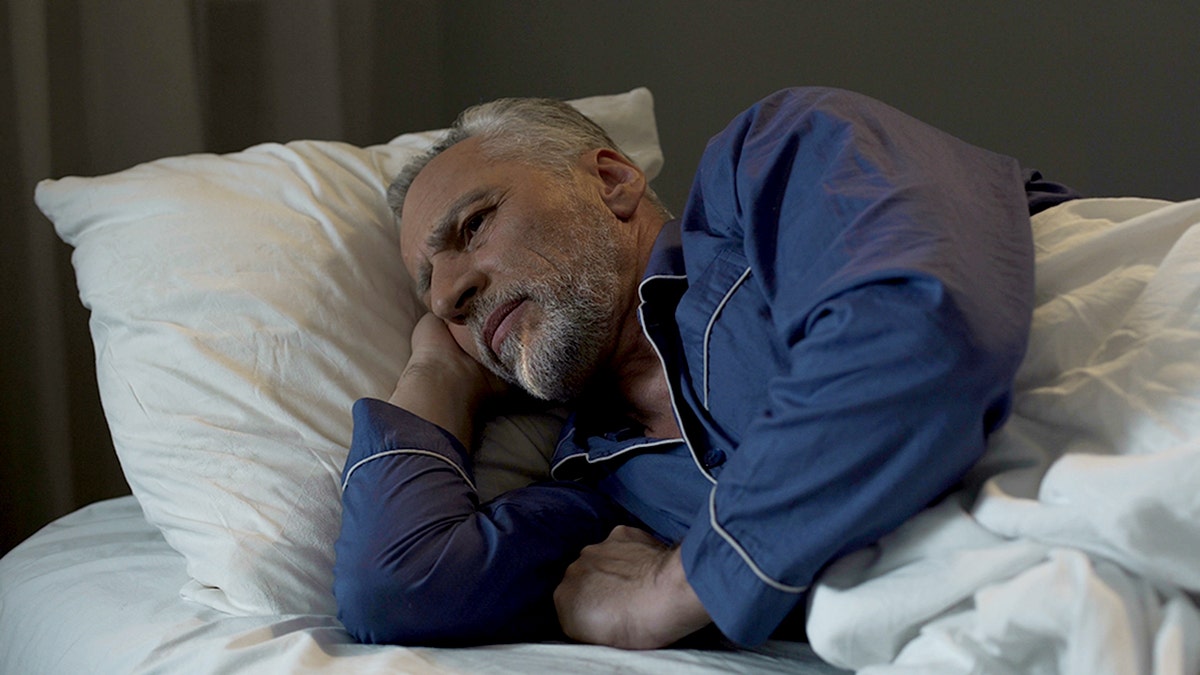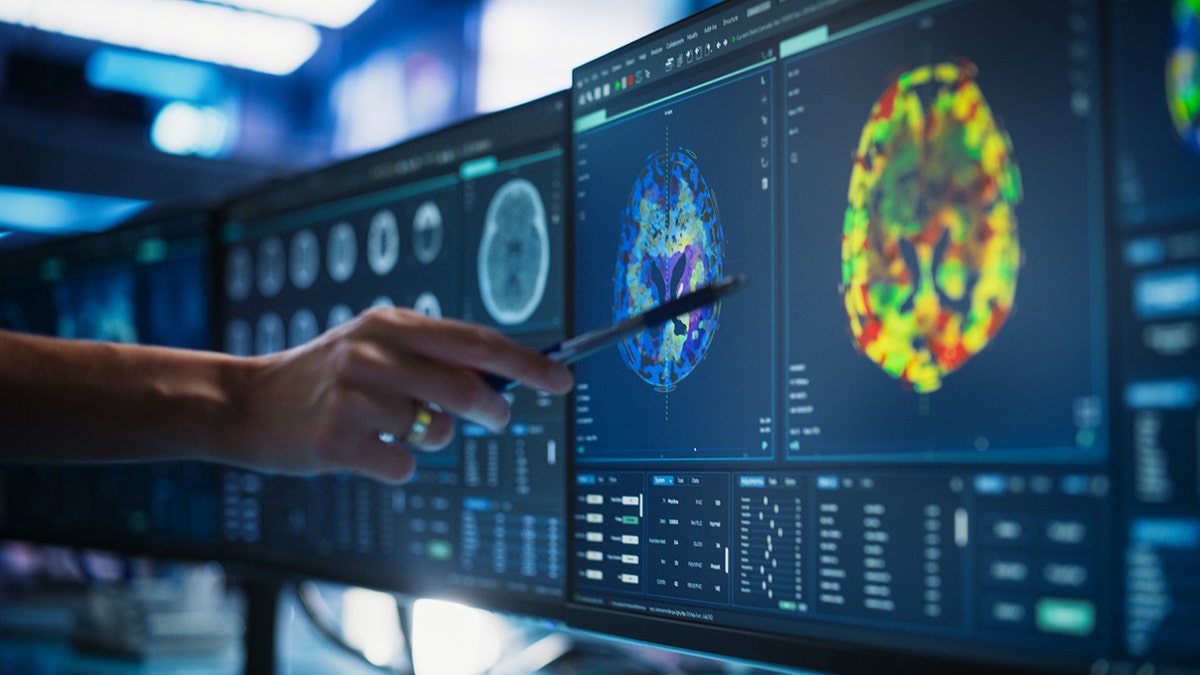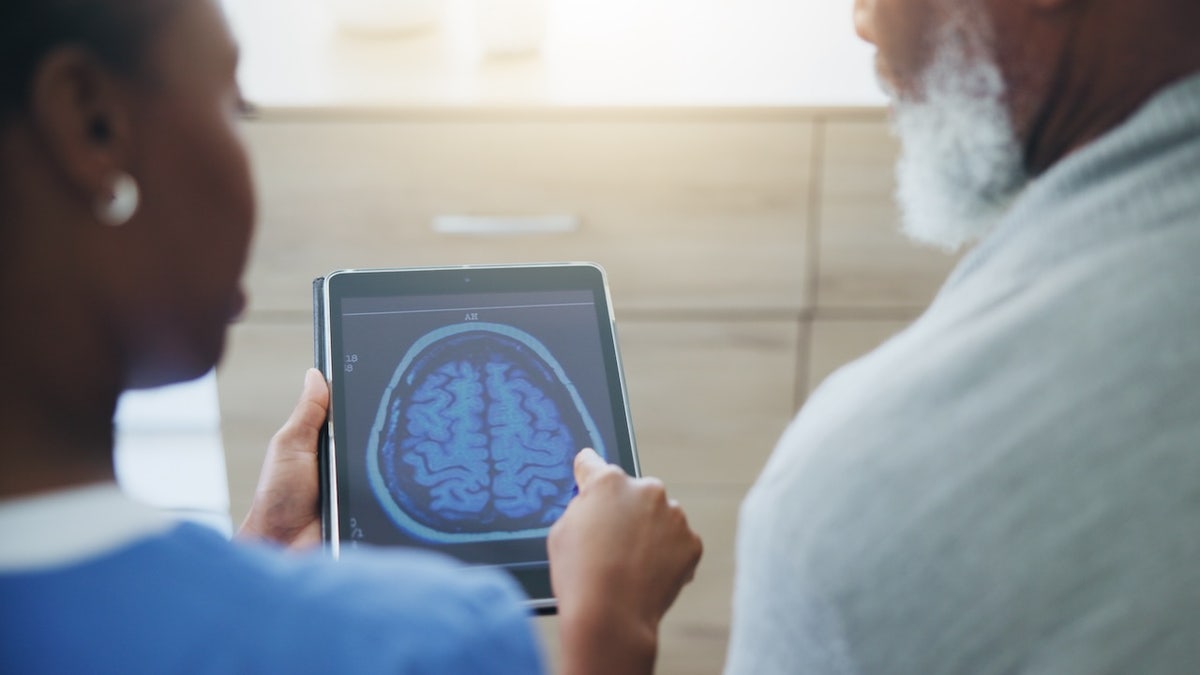Study links delayed REM sleep to higher Alzheimer’s risk

NEWYou can now listen to Fox News articles!
A new study has found a link between rapid eye movement (REM) sleep and Alzheimer’s disease.
The research from China, published in the journal Alzheimer’s & Dementia by the Alzheimer’s Association, analyzed the sleep cycles of 128 adults in varying states of cognition.
The study found that the highest occurrence of REM latency — which is when it takes longer for someone to reach the first REM period after drifting off to sleep — was associated with the highest risk of Alzheimer’s.
MEN FACE DOUBLE DEMENTIA RISK IF THEY HAVE A HIDDEN GENETIC MUTATION
The researchers concluded that prolonged REM latency may serve as a “novel marker of risk factor” for Alzheimer’s disease and related dementias.
Dr. Wendy Troxel, senior behavioral scientist at the RAND Corporation in California, said this study adds to “growing evidence” that specific sleep features, like prolonged REM sleep, are linked to Alzheimer’s biomarkers.

Prolonged REM sleep latency could be a marker for Alzheimer’s and other dementias, researchers discovered. (iStock)
“REM sleep is the stage of sleep when dreams mostly occur, and is critically important for memory consolidation and emotional processing,” Utah-based Troxel, who is also author of “Sharing the Covers: Every Couple’s Guide to Better Sleep,” told Fox News Digital.
This new research aligns with findings from Troxel’s own lab, which have shown that other signs of poor sleep health — like shorter duration and poor quality — are associated with worse cognitive function.
MAKING THESE 11 LIFESTYLE CHANGES COULD WARD OFF ALZHEIMER’S, EXPERT SAYS
“Sleep disruptions may contribute to the buildup of amyloid and tau proteins, key features of Alzheimer’s pathology,” the sleep expert said.
“But it’s also important to note that the Alzheimer’s disease process itself can disrupt sleep, suggesting a bidirectional association between sleep problems and cognitive decline.”

A brain health expert says the correlation between a good night’s sleep and dementia risk has been “long understood.” (iStock)
Dr. Giulio Taglialatela, vice president and research institute director of the Brain Health Institute at the University of Texas Medical Branch, reacted to these findings in a separate interview with Fox News Digital.
Taglialatela said it’s been “long understood” that getting a good night’s sleep is associated with a lower risk of developing dementia.
CLICK HERE TO GET THE FOX NEWS APP
“Our brains use sleep to clear out toxic proteins, like those associated with Alzheimer’s, and these results show that the cleaning mechanism is less effective when it takes someone longer to enter the REM cycle,” he noted.
“Unfortunately, there is nothing an individual can do to control how long it takes to enter REM sleep,” the expert.”
“Our brains use sleep to clear out toxic proteins, like those associated with Alzheimer’s.”
However, the expert said, the findings provide a “promising avenue” for predicting the likelihood of someone eventually developing dementia.
“Early intervention in Alzheimer’s is essential for delaying its progression, and measuring REM sleep could be a marker to indicate who may be a candidate for treatment even before they start to show impaired cognitive function,” Taglialatela said.

“Early intervention in Alzheimer’s is essential for delaying its progression, and measuring REM sleep could be a marker to indicate who may be a candidate for treatment even before they start to show impaired cognitive function,” an expert said. (iStock)
Potential limitations
The study did have some limitations, the researchers acknowledged – primarily that it was cross-sectional, “and thus the direction of the association cannot be determined.”
The sample size was also relatively small, and the researchers only focused on one specific type of tau protein.
CLICK HERE TO SIGN UP FOR OUR HEALTH NEWSLETTER
There is also the possibility that monitoring sleep in a clinical setting may introduce “environmental disturbances,” impacting sleep measurement accuracy, the researchers noted. “Future studies will benefit from research in real-world home settings,” they wrote.
Tips for sleep improvements
While these findings are important, Troxel said, she encourages individuals to not allow the information to be “another source of worry that keeps you awake at night.”

Focusing on core sleep habits is the “most effective” way to support brain health and overall wellness, an expert said. (iStock)
“Avoid the tendency to become overly fixated on metrics like REM sleep percentage or latency from consumer sleep trackers, as they have limited accuracy in determining sleep architecture,” she cautioned. “Obsessing on such data can increase anxiety, which is a powerful sleep disruptor.”
The best approach is to focus on the foundations of good sleep health, the expert said.
Adults should strive for seven to nine hours of shuteye and should maintain consistent sleep and wake times, according to Troxel.
“Obsessing on such data can increase anxiety, which is a powerful sleep disruptor.”
“Minimize common disruptors such as excessive caffeine and alcohol, which are known to fragment REM sleep, [as well as] screen use before bedtime,” she added.
For more Health articles, visit www.foxnews.com/health
“Focusing on these core sleep habits is the most effective and evidence-based way to support the brain and overall health.”
Taglialatela also encourages individuals to focus on creating an “ideal sleep environment” while maintaining “good bedtime habits” to reduce the risk of developing Alzheimer’s.
